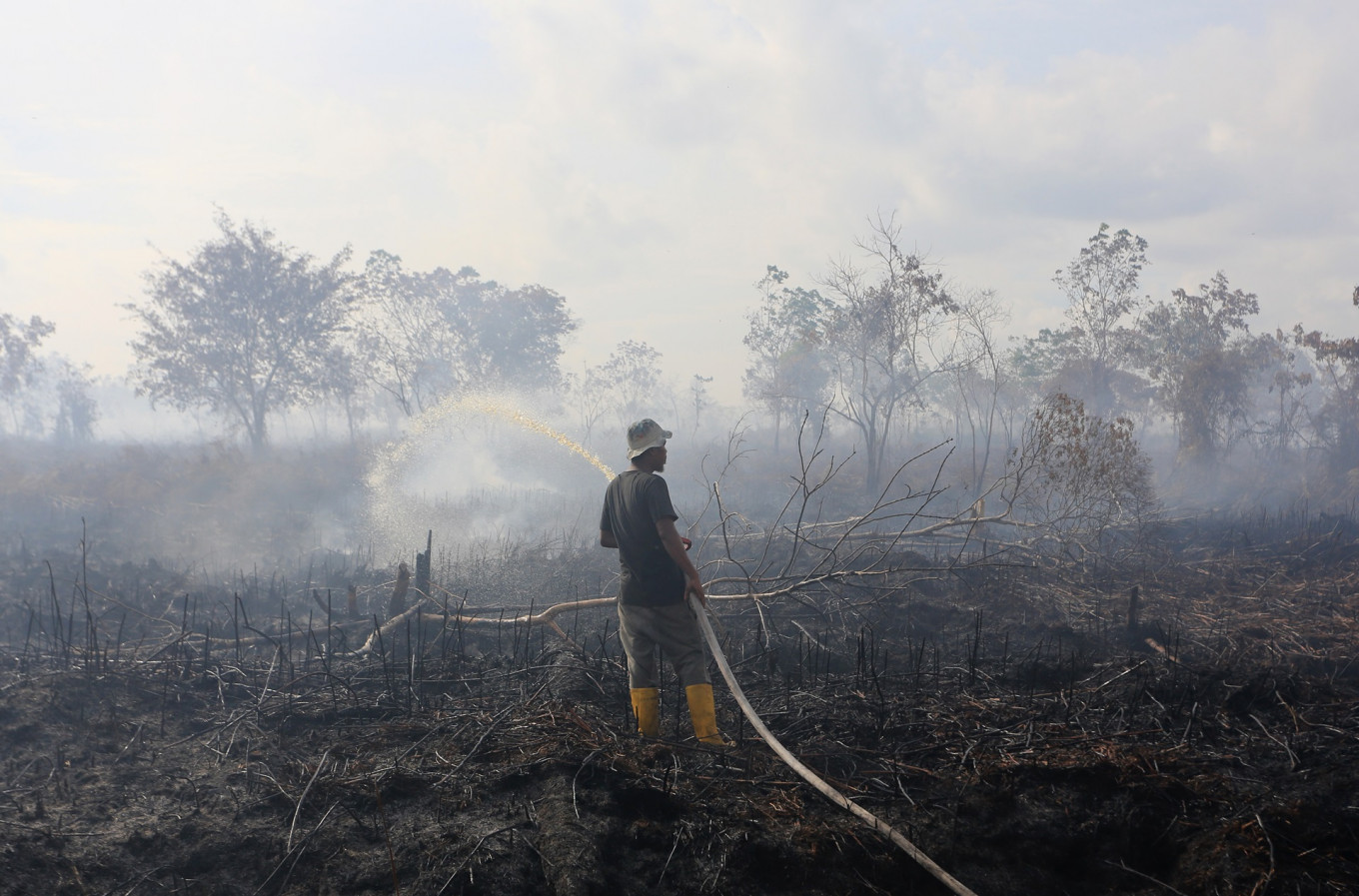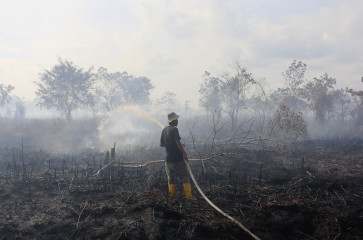Popular Reads
Top Results
Can't find what you're looking for?
View all search resultsPopular Reads
Top Results
Can't find what you're looking for?
View all search resultsCentral banks must stem the nature crisis
A stable financial system is highly dependent on nature, and nature is increasingly in crisis.
Change text size
Gift Premium Articles
to Anyone
T
he 10 most expensive climate disasters of 2024, the hottest year on record, cost more than US$229 billion, while extreme weather events have left fewer and fewer countries unscathed.
Deadly floods in China, Germany and Kenya, scorching heat waves in India, prolonged droughts in Brazil and, most recently, major wildfires in the United States and Ghana highlight the increasingly severe ripple effects of nature degradation and climate change on economies and societies.
The global economy depends on a stable climate and reliable ecosystem services, including the provision of fresh water, healthy air, erosion and flood control, pollination, climate regulation and carbon sequestration. According to the European Central Bank, nearly 75 percent of all eurozone bank loans are provided to firms that are highly dependent on at least one these ecosystem services.
The economic implications of this dependence are profound. In the United Kingdom, environmental degradation could cause a 12 percent contraction in GDP, worse than the hit caused by COVID-19, if left unaddressed.
An analysis of nature-related risks in Hungary found that in the absence of adequate mitigation strategies, severe drought could double the volume of non-performing loans, increase sovereign debt and reduce economic output by 4-7 percent in a single year.
And a World Bank analysis of 20 emerging markets found that 55 percent of bank loans, on average, are exposed to activities that are highly or very highly dependent on at least one ecosystem service. It turns out that a stable financial system is highly dependent on nature, and nature is increasingly in crisis.
Although these risks are increasingly well understood by central banks, businesses and financial institutions are not required or incentivized to invest in protecting nature. In fact, nearly $7 trillion of public and private finance per year supports activities that damage forests, pollute water sources and destroy biodiversity, 35 times the amount of investment in nature-positive initiatives.



















